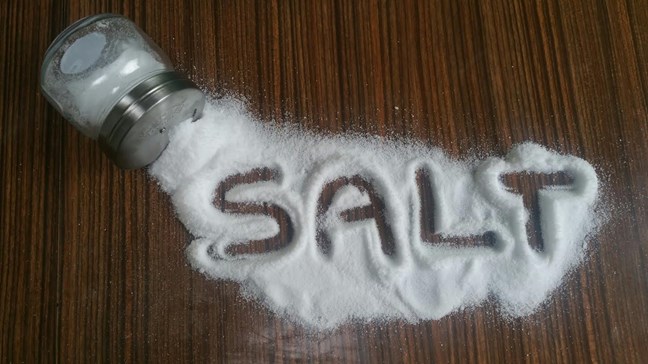The human body needs a tiny amount of sodium to function properly and this is typically found in salt (sodium chloride).
人体需要微量钠,以便正常运作。而钠通常在盐里(氯化钠)。
But today most people consume way too much salt, increasing the burden of cardiovascular disease around the world.
但是今天大多数人摄入太多盐,在世界上增加了心血管疾病。
Health professionals have been trying to tackle this problem for decades, but face several barriers, including research that muddies the water about what safe levels of salt intake are.
健康专家数十年来一直在努力解决这个问题,但是面临几个障碍,包括有关摄入盐的安全等级的搅混水研究。
This has cast unnecessary doubt on the importance of reducing intakes.
这为减少摄入的重要性带来了不必要的疑虑。
But our latest research has found flaws in these studies and suggests that salt intake should be reduced even further than current recommendations.
但是我们最近的研究发现了这些研究的瑕疵,表明盐分摄入应该在目前的推荐摄入量上进一步减少。
The World Health Organisation (WHO) recommends that people consume less than 5 grams of salt a day, but global intakes average 10 grams a day.
世界卫生组织推荐,人们每天摄入的盐分不超过5克,但是世界上每日平均摄入盐分量是10克。

Excess salt consumption raises blood pressure, which increases the risk of heart attacks, heart failure and stroke.
过量盐分摄入会使血压升高,这增加了患心脏病、心脏衰竭和中风的风险。
They posit that consuming both less than 7.5 grams and more than 12.5 grams of salt per day could lead to an increased risk of cardiovascular disease and early death.
他们认定,每天摄入的盐分少于7.5克或多于12.5克可能导致患心血管疾病的风险增加以及早死。
A gradual reduction in salt intake across the whole population, as recommended by WHO, remains an achievable, affordable, effective and important strategy to prevent cardiovascular diseases and premature death worldwide.
正如世界卫生组织推荐的那样,在世界人口中逐渐减少盐分摄入量是可行、可负担、有效并重要的战略,可以在世界范围内预防心血管疾病,防止早亡。
Even a small reduction in salt intake will have an enormous benefit on people's health. The Conversation
即使减少很小的盐分摄入对人的健康也有巨大的好处。


